Dieter and Elizabeth Gutmann, from Hamburg, Germany, have devoted much of their lives and wealth to tiger conservation. For the past 20 years, they have regularly visited Ranthambhore Tiger Reserve, not as ordinary tourists but as agents of change, strengthening efforts to protect tigers and supporting the marginalised communities with whom the survival of the tiger is inextricably intertwined.
Despite Dieter’s extensive career in the international oil industry, his passion for nature and big cats spans a breathtaking five decades, with deep engagements in Eastern and Southern Africa, India, and Nepal. Dieter and his wife Elizabeth have travelled to 89 countries, starting their global journey in the western hemisphere in 1964 with Latin America, and later heading as far east as Australia, New Zealand, and parts of China. A lifetime of travel and unique experiences has given him a profound understanding of economics, policymaking, people and wildlife.
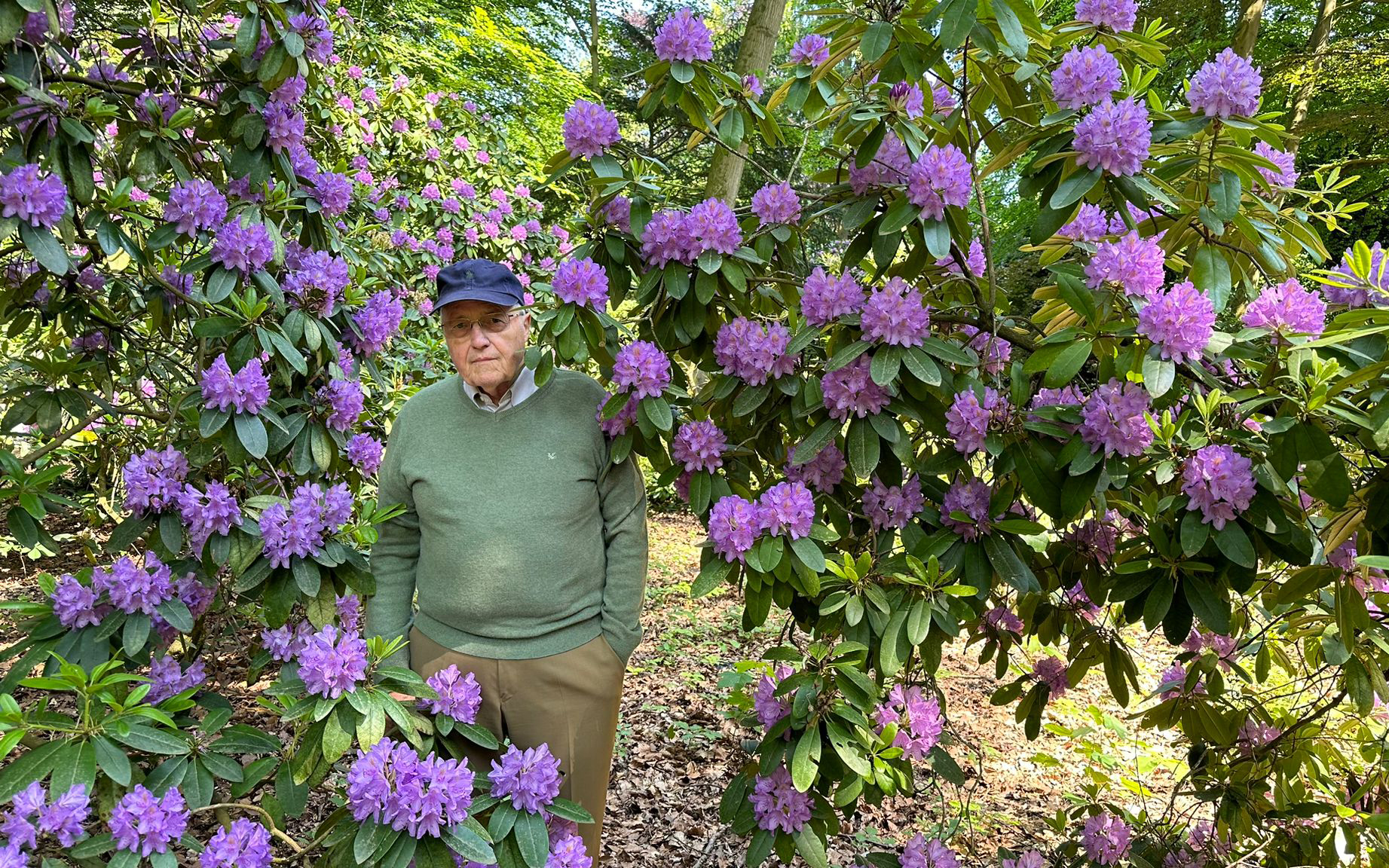
Dieter Gutmann enjoying the vibrant colors of the rhododendrons in bloom.
In 2004, he began supporting a research camp in the Central Kalahari in Botswana run by Leopard Ecology & Conservation (LEC) (www.leopard.ch) and also sits on the board of directors of their partner organisation, the African Cats and Conservation Foundation. Dieter’s connection to Indian tigers is nothing short of an enduring fascination, having visited over 15 Indian tiger reserves, some of them multiple times. His commitment to Ranthambhore began in 2005 when he met our late founder Fateh Singh Rathore. This meeting blossomed into a long and impactful association with Ranthambhore, its tigers and local communities. In 2005, when the tigers of Ranthambhore faced a severe existential threat from poachers belonging to the Mogya traditional hunting tribe, Tiger Watch was battling the crisis head-on with limited support from the forest department. Recognising the gravity of the situation, Dieter decided to assist Tiger Watch on the ground.
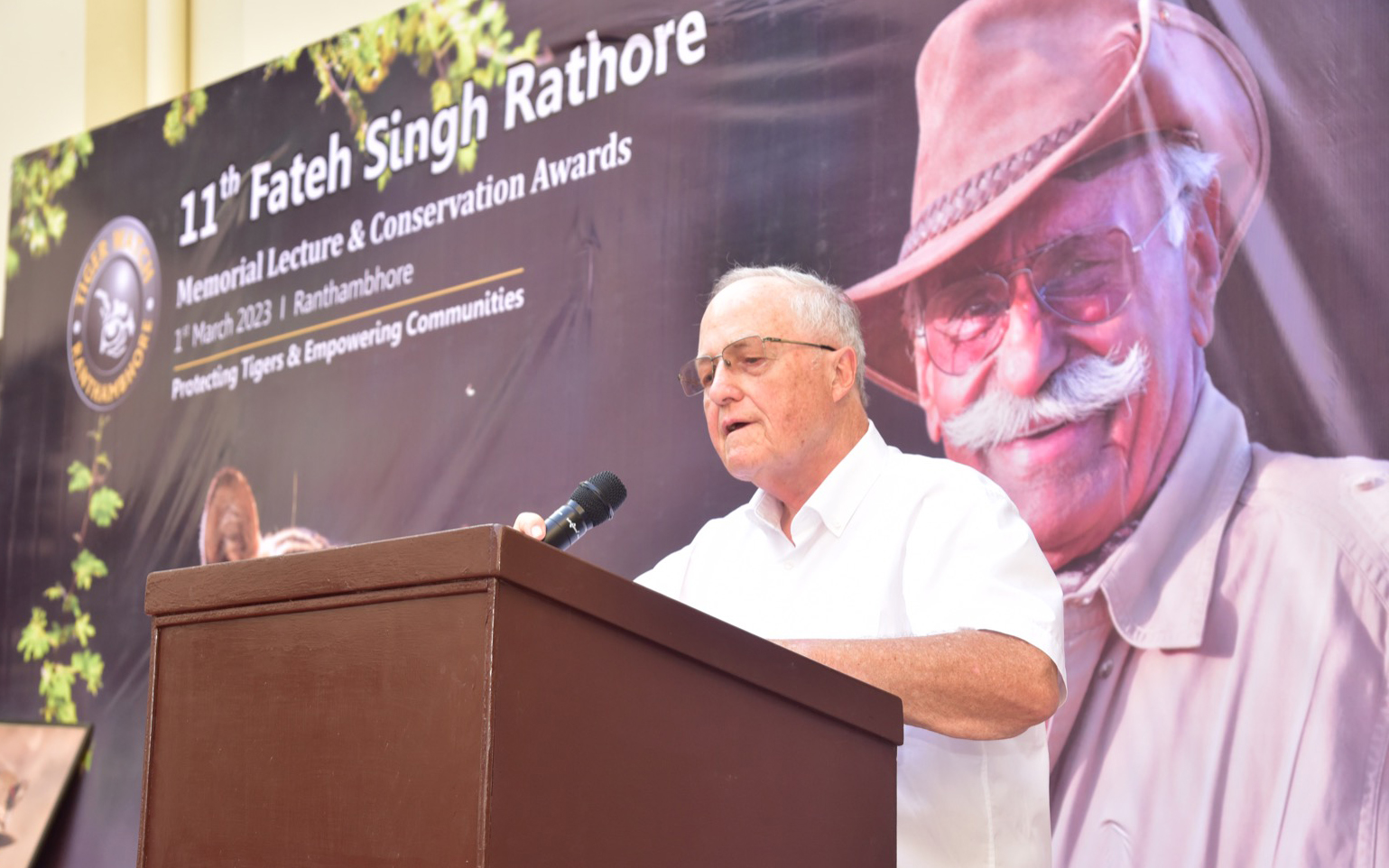
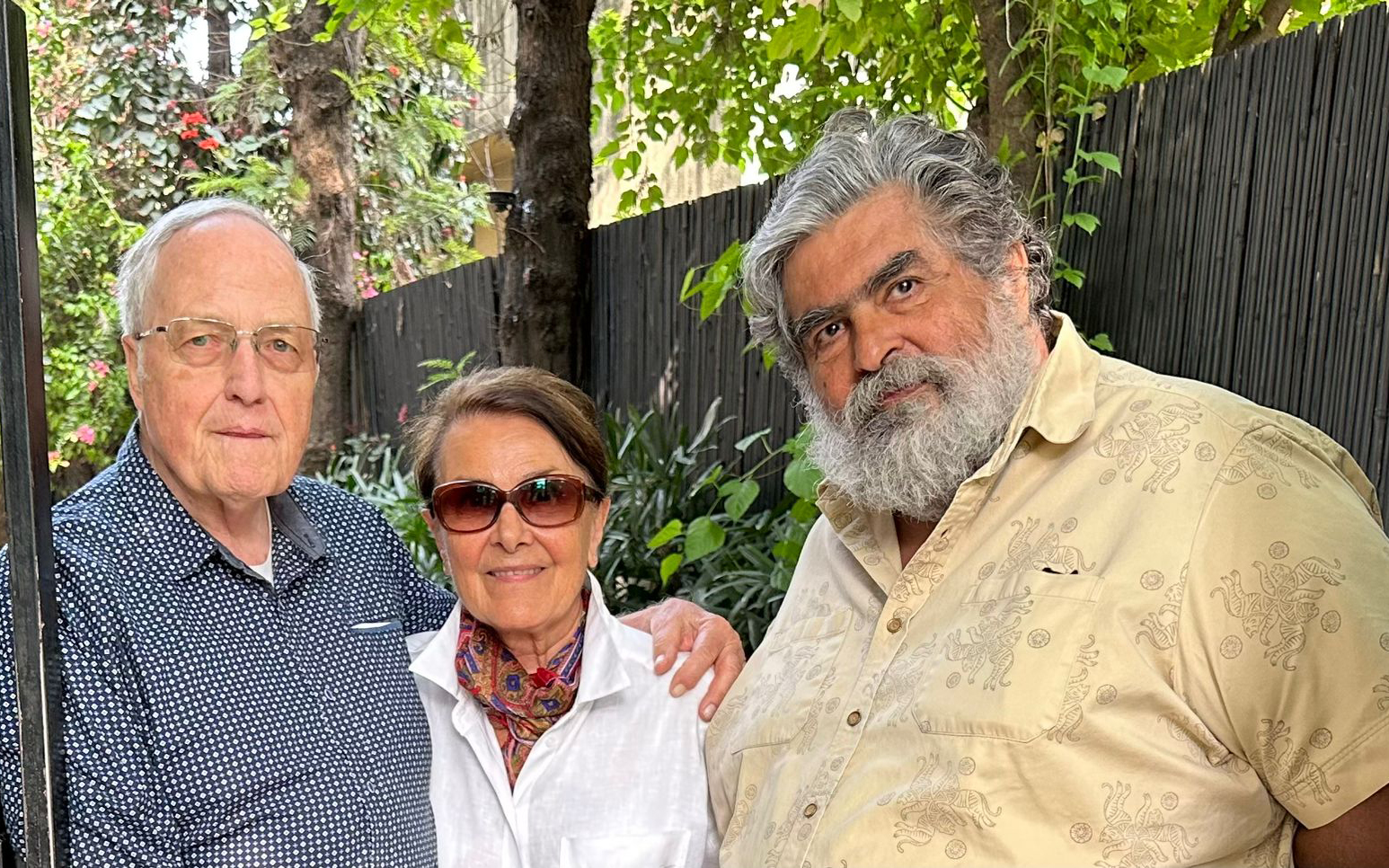
Dieter Gutmann, during Fateh’s Memorial Lectures and Awards function (Left). Dieter and Liz Gutmann with Valmik Thapar, a renowned Tiger Conservation activist (Right).
He and Elizabeth met with the families of the Mogya poachers, understanding their livelihood struggles being a part of a marginalised traditional hunting tribe, and decided to help integrate them into mainstream society in a bid to end the poaching crisis. A notable case was that of Jugraj Mogya, a notorious poacher who had killed three tigers. Jugraj, who operated from the village of Uliyana, surrendered his illegal weapon in 2006 to Fateh Singh Rathore and the ex-Director General of Police (DGP) for Rajasthan, Shantanu Singh. After serving time in prison, Jugraj returned to Uliyana only to be kidnapped by villagers demanding repayment of a loan he had taken to finance his daughter’s marriage. The inflated loan amount and constant threats forced Jugraj into a desperate situation. Tiger Watch rescued Jugraj from Uliyana, but he still feared for his family’s safety.
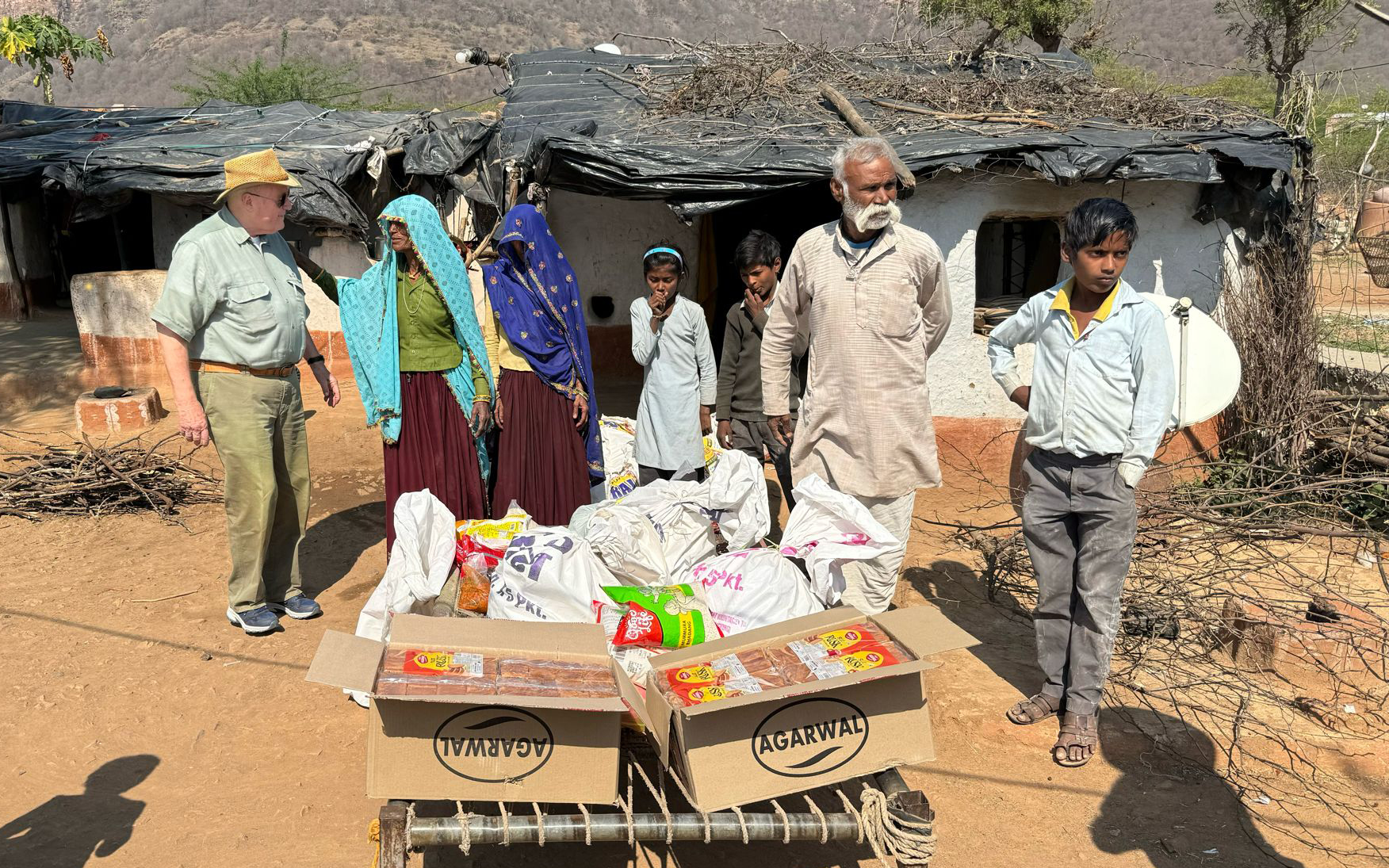
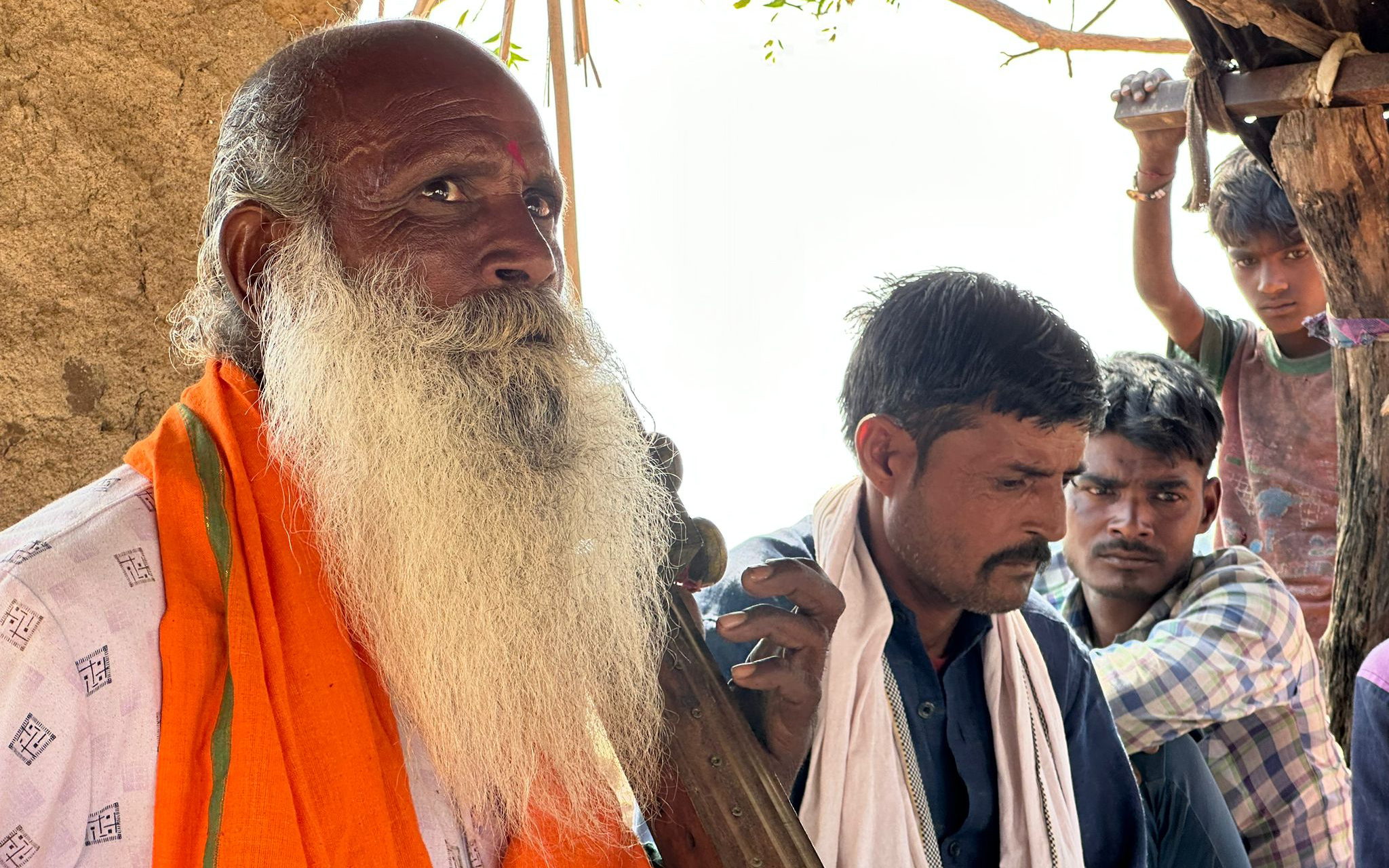
Dieter Gutmann, during a visit to a village around Ranthambhore Tiger Reserve to see reformed poachers, Lakhan Mogya (left) and Pappu Mogya (right).
Fateh Singh Rathore, with Dieter’s support, settled Jugraj’s debt in total to the moneylender. Additionally, the then Assistant Conservator of Forests (ACF) Sudarshan Sharma offered Jugraj a job as a gardener in the forest department’s office, providing him with a dignified livelihood and a source of income. Although Jugraj later sadly succumbed to cancer, Dieter and Elizabeth continued to support his family, providing a monthly pension and annual grocery supplies. Recognising Tiger Watch’s crucial role in wildlife conservation, Dieter and Elizabeth minimised their personal expenses to significantly support the organization. They now sponsor a significant part of Tiger Watch’s expenses and have developed the Bagh Mitra Tiger Conservation Awareness Program with their funds. This program aims to sensitise children in local communities around the Ranthambhore Tiger Reserve to the importance of wildlife conservation in their local context.
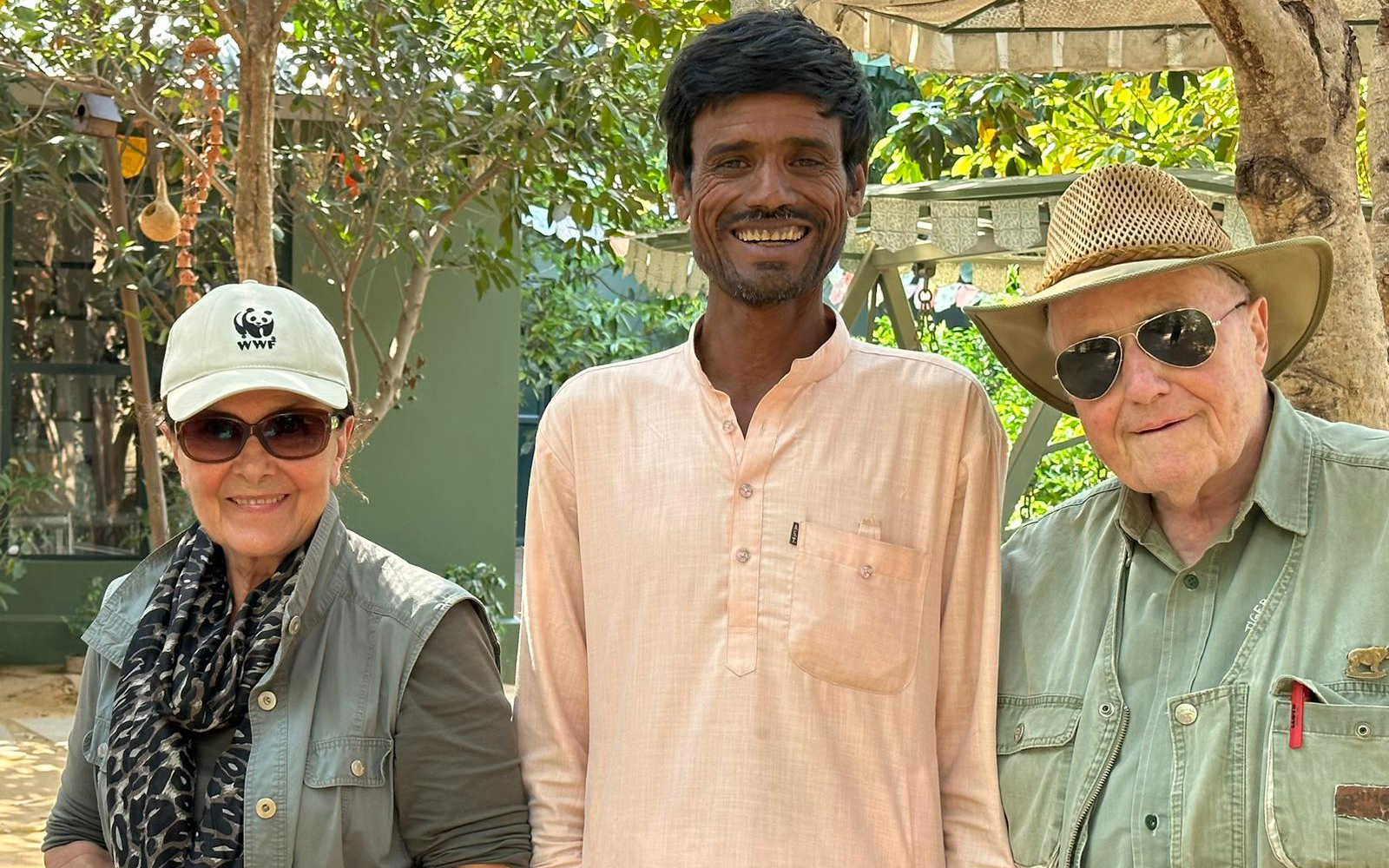
Dieter & Liz Gutmann meeting Bhajan Mogya, a reformed poacher.
Anthropogenic pressure poses a significant threat to tigers and their ecosystems, necessitating long-term solutions. By educating children, the program prepares future generations to participate in wildlife conservation efforts in areas that matter the most i.e. their own communities. The core pillar of the Dieter & Liz Gutmann Tiger Conservation Program involves engaging 65 villages in the Sawai Madhopur district. The methodology includes identifying high and low-priority villages, developing specialised awareness materials, and training a mobile team of teachers to deliver conservation education.
This large-scale intervention, the first to be conducted by Tiger Watch at such a grand scale, was initially executed by a team of four teachers and has expanded with support from Petronet LNG Limited, now involving nine teachers and reaching 25,000 students. Tiger Watch’s success is evident in the recovery of the tiger population in Ranthambhore. From a mere 18 tigers in Ranthambhore in 2005, the number has increased to 123 in Rajasthan, with new tiger reserves declared and a flourishing tiger population in the state.

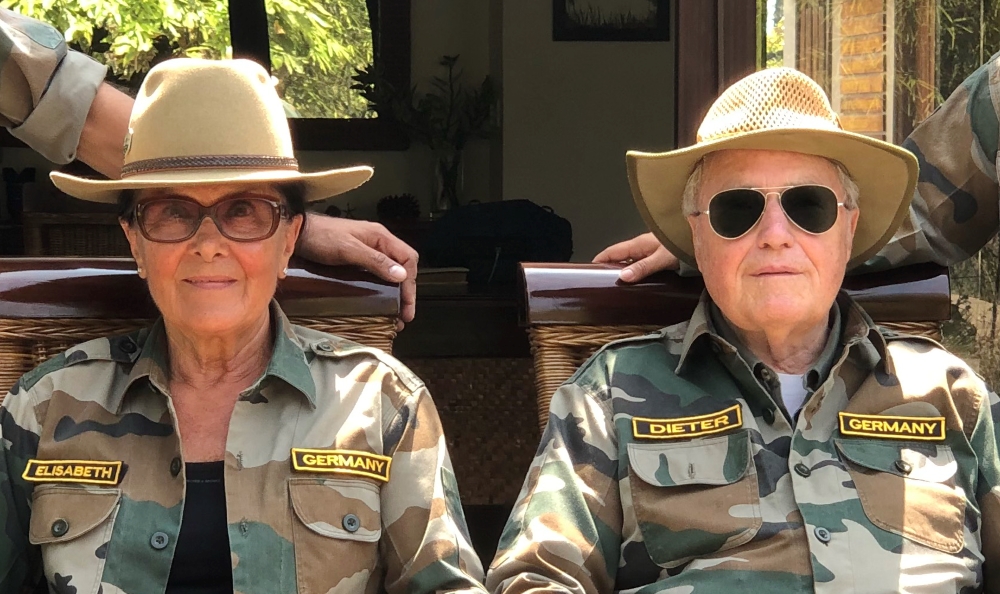
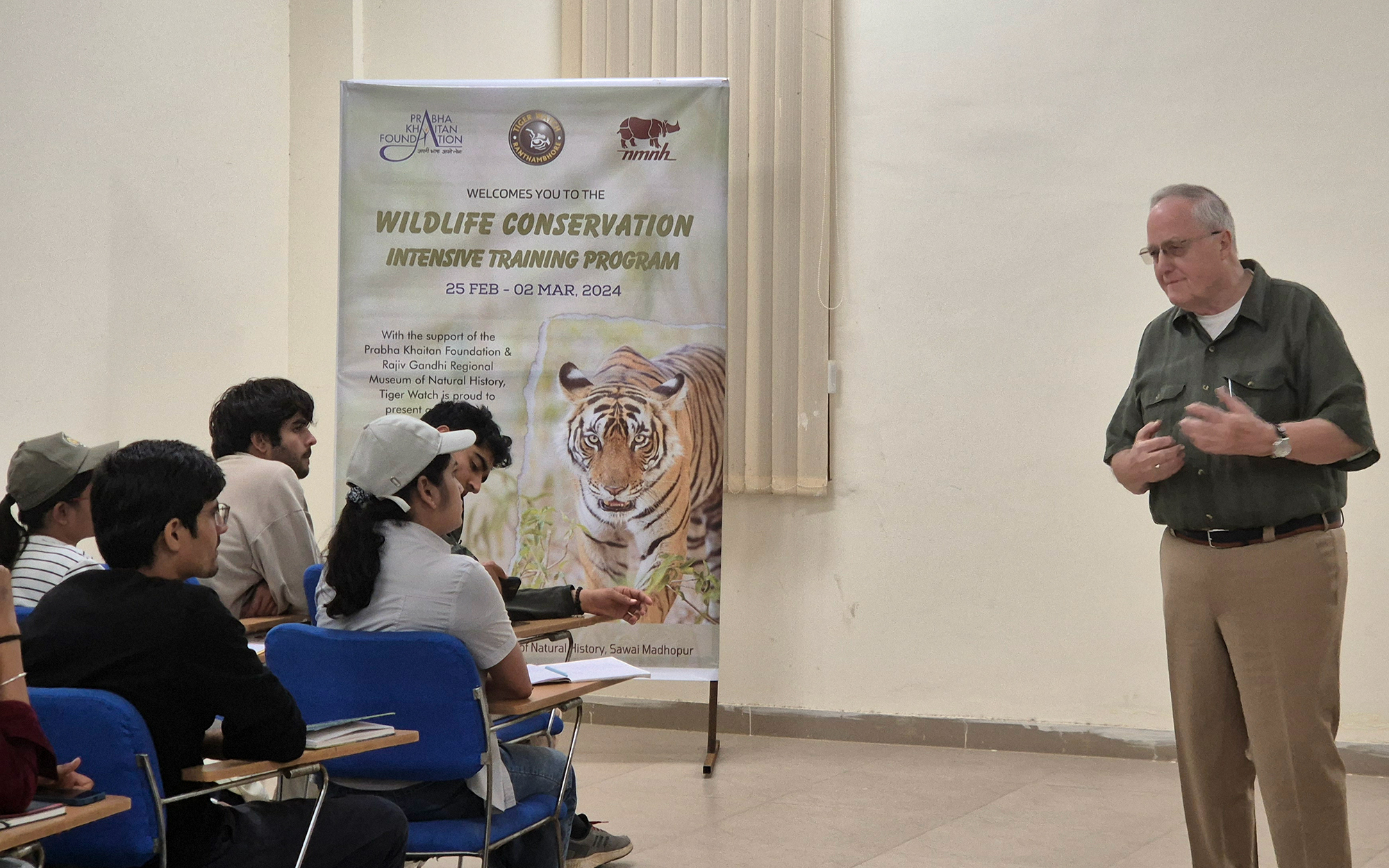
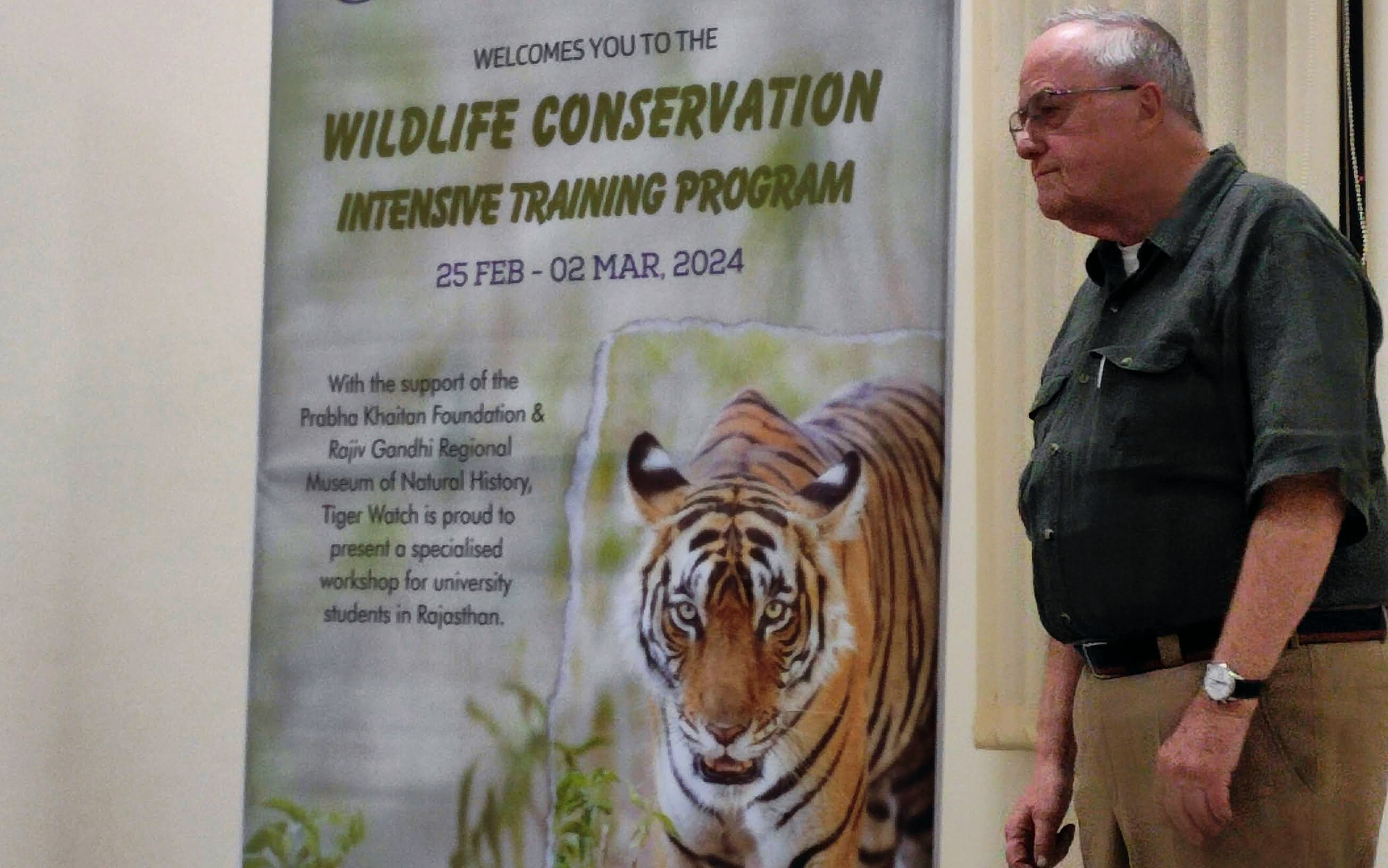
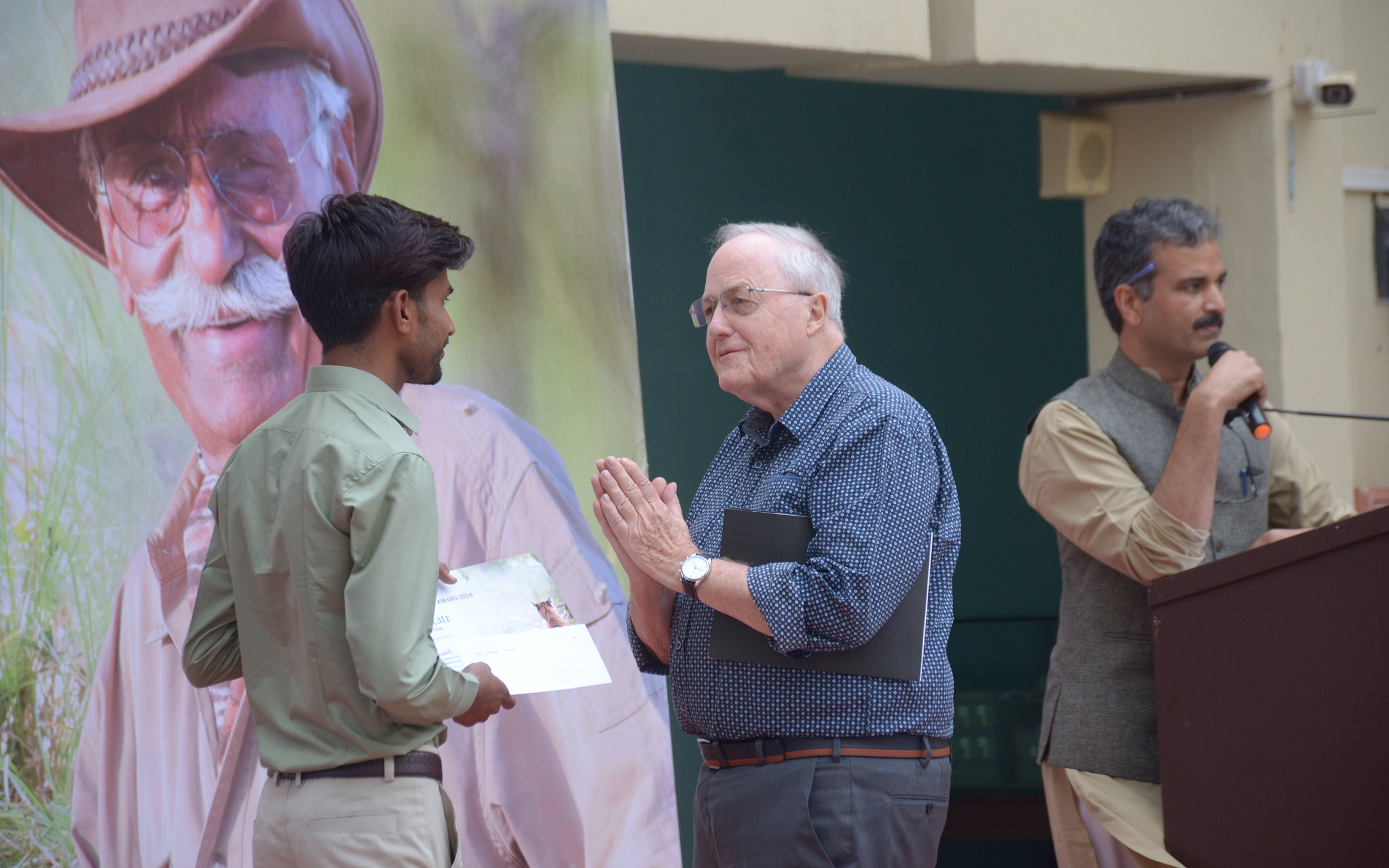
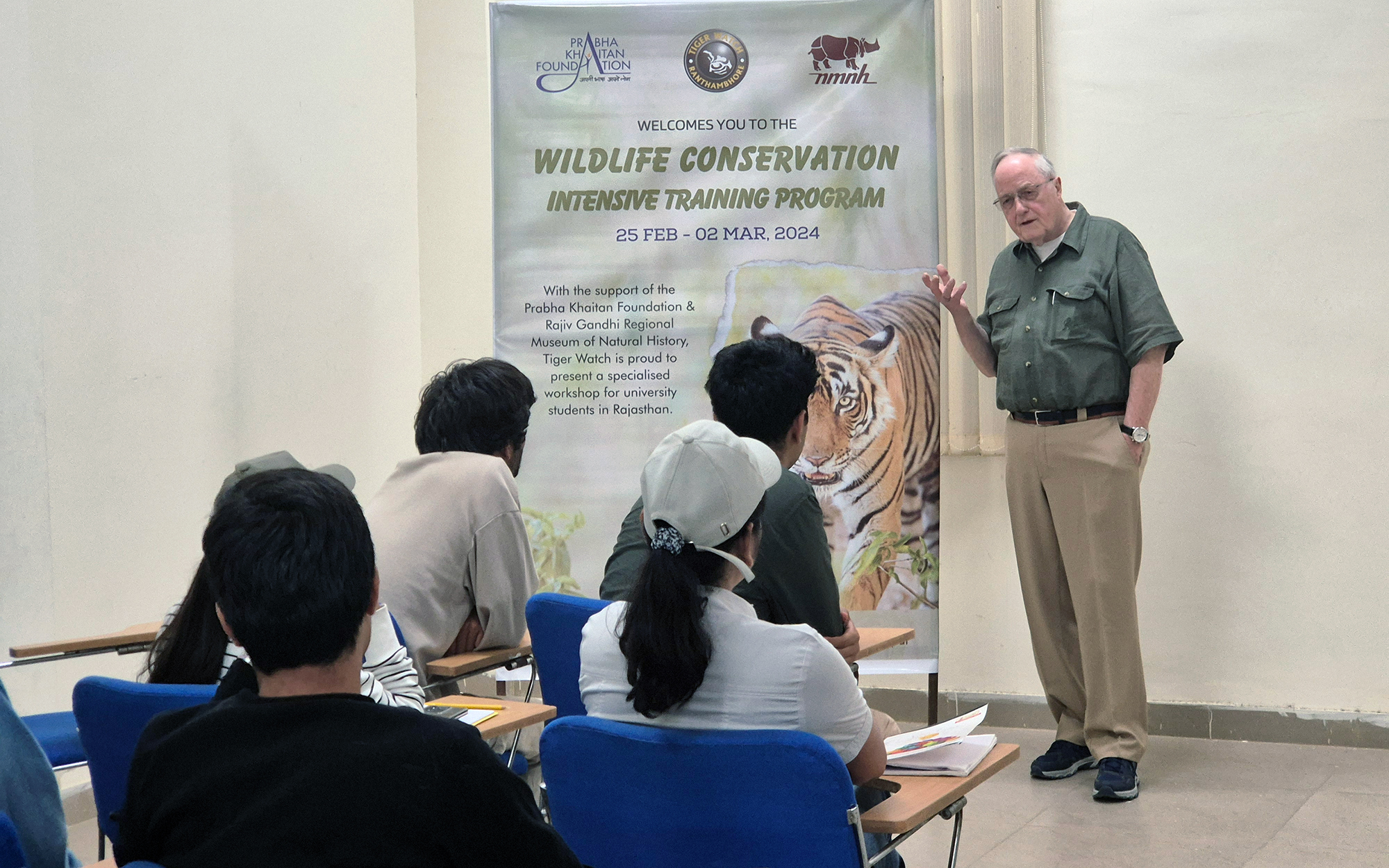
Dieter and Elizabeth Gutmann’s unwavering dedication to Ranthambhore is an inspiring tale of transformative conservation. Their holistic approach, addressing both wildlife protection and community upliftment, is a model for others to emulate. The Gutmann’s generosity and deep understanding of the intricate relationship between people and nature have not only saved tigers from the brink but also empowered local communities to become guardians of their own natural heritage. This remarkable story is a testament to the power of individual action and the lasting impact it can have on the world.
This project is a pleasure to experience. My visit took place in a pleasant, relaxed atmosphere over two days with 3 game drives.
I was delighted to meet competent guides, capable jeep drivers and even a member of the senior management by chance.
The work has a depth of Best Practice and scope, which I will remember and recommend to others.
My thanks to the vision of all those involved to have worked hard and tirelessly to make it a real success for everyone involved in and around the local region.
Tiger Watch and Dieter ji have made an incomparable contribution to Ranthambore and the youth here. You people have given a new life to nature and the animals of this forest. For this, You have become an ideal for every youth. Thank you ❤️
Dieter and Elizabeth are those rare individuals who walk the talk, and provide their time and financial resources to truly change the world. May their work inspire many others!
Ich bewundere Elisabeth und Dieter Gutmann für ihren unermüdlichen Einsatz im Zeichen des Schutzes dieser wunderschönen und leider bedrohten Tiere. Seit nunmehr zwei Jahrzehnten treten sie in Wort und Tat mit ihren Mitstreitern dafür ein. Möge auch die jüngere Generation davon erfahren und sich inspiridren lassen, Gleiches oder Ähnliches zu tun.
Hans-Joachim Schatz
Korrektur erforderlich bei meinem Kommentar: inspirieren lassen
Danke!
Hans-Joachim Schatz